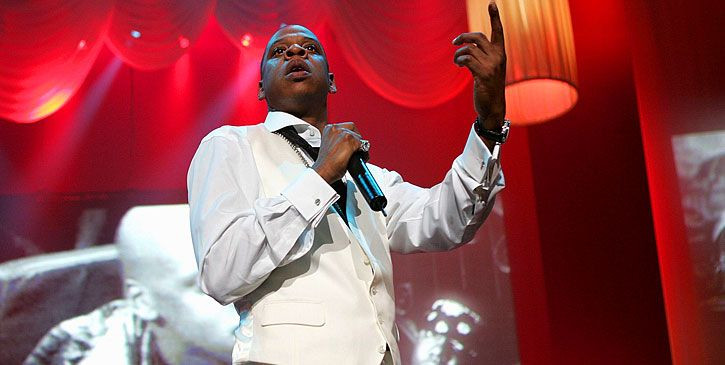Jay Z Pulls 'Reasonable Doubt' Off Spotify, But Don't Expect Other Artists To Follow

A big gun fired a symbolic shot in the battle over streaming music Monday. Tidal co-owner Jay Z, whose real name is Shawn Carter, pulled his major label debut, 1996’s Reasonable Doubt, off Spotify yesterday, but kept it on some of its competitors’ services, including Rdio and Google Play Music. “Reasonable Doubt” is also available for streaming on Tidal, the service Carter and a consortium of investors purchased for $56 million earlier this year.
“It was completely logical for him to pull his record from Spotify,” said Steve Gordon, a former attorney at Sony Music Entertainment and the author of “The Future of the Music Business.”
While Carter's move was mostly symbolic -- the lion’s share of his catalog remains on Spotify – it sends the message that he and his Tidal co-owners will be making an effort to stigmatize Spotify, the leader in an increasingly competitive market for on-demand streaming music services.
Tidal and its competitors have a number of reasons to apply pressure. Spotify's 60 million users are far more than the totals of any competitor that's released numbers, and it is also using an ad-supported tier to drive most of that growth; three quarters of Spotify's active users are not paying subscribers. Instead, they use an array of ad-supported offerings available on desktop and mobile devices.
Competitors including Google Play Music, Beats Music, Rhapsody and Deezer, either offer no free tier at all or one that delivers a Pandora-like experience, in which users can only listen to curated playlists or radio stations. A number of players, including Universal Music Group, which holds equity stakes in Spotify as well as most of its competitors, are reportedly pressuring Spotify to abandon that free tier and force users to pay.
“The major labels, the indie labels are not getting enough money from Spotify, and they’re cranky,” Gordon said.
Though Monday’s move attracted a lot of attention in the music press, the “Reasonable Doubt” move is unlikely to be part of a mass exodus of artists and their releases leaving Spotify. Carter is in position to make moves like these because, unlike most of his Tidal co-owners and most musicians signed to record contracts, he owns his master recordings and the rights that come with them.
Where most artists would have to ask permission from their labels or publishers to take their music off a service, Carter can move his music from one service to another whenever he likes. “It's very unusual,” Gordon said of Carter’s ownership of his masters. “You have to be a super, super megastar. Even Michael Jackson, on his last contract with Sony, there was something like a 50-50 split.”
© Copyright IBTimes 2024. All rights reserved.




















